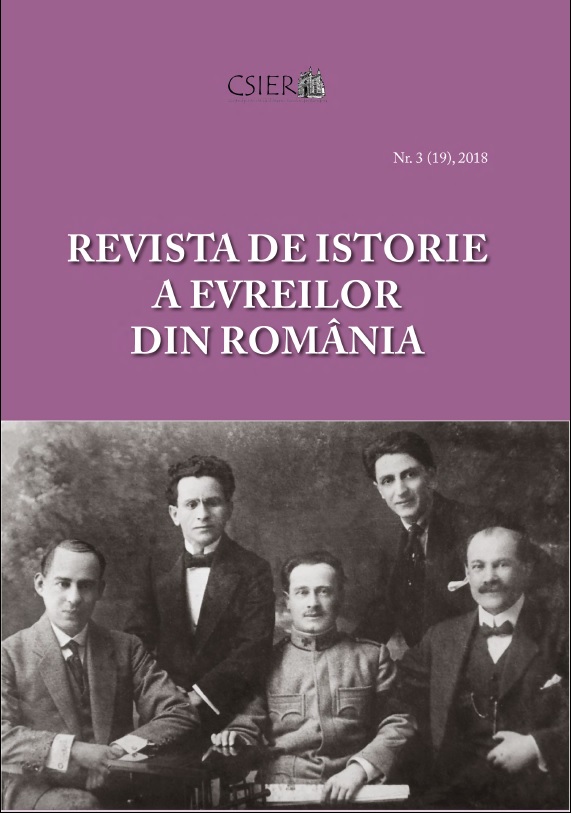Glossen zum unaufhaltsamen Niedergang der deutschsprachigen „Jüdisch-liberalen“ Presse im Czernowitz der Zwischenkriegszeit
Close to the unstoppable decline of the Jewish-liberal, German-speaking press in interwar Cernauti
Author(s): Andrei Corbea-Hoişie Subject(s): Archaeology, Jewish Thought and Philosophy, History of Judaism
Published by: Editura Hasefer
Keywords: German-language press; Bucovina; Jewish community; cultural symbiosis;
Summary/Abstract: The study aims to follow up on the slow agony of the German-language press in Bucovina, aprovince attached to Romania in 1918. This was the expression of a certain public opinion inextricably linkedto the cosmopolitan and liberal profile of the German-speaking Jewish bourgeoisie in the former Habsburgprovince. For more than a decade after the end of the world war, these very diverse and numerous media outlets– such as the Czernowitzer Allgemeine Zeitung, the Czernowitzer Morgenblatt or Der Tag, which enjoyedquite a large print run – actually managed to build-up and cultivate an alternative local „public opinion”to that of the official culture serving the goal of „national” homogenization of the region; in this respect, itslucid relation to Romanian culture and to the emblematic figure of poet Mihai Eminescu, seen as belongingto a set of universal ethical and aesthetic values, can be considered as symptomatic. The existential crisis of theGerman-language gazettes in Chernivtsi, which was more and more obvious in the 1930’s, was caused notonly by the anti-minority policy of the anti-Semitic authorities, or by the excesses of the Romanian far-right,but also by the fact that the so-called „Jewish-German cultural symbiosis” lost credibility when Hitler’s ideologybecame mainstream. The symbolic threshold of 1933 – when the Nazis came to power in Germany – markedthe final political and administrative attack against those media outlets, in line with the generalized andaggressive xenophobia directed against them; having been completely banned under the rule of the Goga-CuzaGovernment and tolerated in a de-structured form by the regime of the royal dictatorship, they eventuallydisappeared when Northern Bukovina was annexed by the USSR.
Journal: Revista de Istorie a Evreilor din Romania
- Issue Year: 2018
- Issue No: 3 (19)
- Page Range: 200-209
- Page Count: 10
- Language: German
- Content File-PDF

